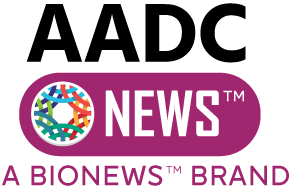Rare disease medications among those with patient support programs
About 1 in 10 therapies sold in Canada have a manufacturer-provided program

About one in 10 medications sold in Canada have a patient support program provided by its manufacturer, and nearly half are for rare diseases.
That’s according to a study in Canada that also found that patient support programs were offered more commonly for brand-name and expensive drugs. These programs, offered alongside therapeutic products, are intended to support the patient experience and medication adherence through education, training, support, and financial assistance.
But “whether manufacturer-sponsored patient support programs are the optimal model to provide care related to medicines is an open question. Models of care should be designed around people’s health needs, not a particular product,” the researchers wrote in “Prevalence and nature of manufacturer-sponsored patient support programs for prescription drugs in Canada: a cross-sectional study,” which was published in the Canadian Medical Association Journal. “In an era where policymakers are grappling with escalating drug prices and budgetary impacts globally, the pharmaceutical industry promotes patient support programs as adding complementary value to a drug through supporting medication adherence and enhancing clinical outcomes, patient experience or quality of life.”
No therapy for aromatic L-amino acid decarboxylase (AADC) deficiency, an ultra-rare genetic and neurometabolic disease, is yet approved in Canada.
While the programs are offered in high- and middle-income countries, “the extent or nature of the services provided are not well understood, making it difficult to assess their value to patients or their impact within health systems,” the researchers said.
Understanding extent of patient support programs
Patient support programs appeared in Canada about 20 years ago, when biologic therapies, or those derived from a living organism, became commercially available. But the “extent to which patient support programs are offered for biologics and nonbiologics, or for biosimilar or generic drugs is unknown,” wrote a team of researchers in Canada who screened publicly available web-based sources to identify and describe manufacturer-sponsored patient support programs for medications prescribed there as of Aug. 23, 2022.
The scientists also used other national and U.S. databases to identify the therapy’s features and cost.
Out of 2,556 prescription drugs marketed by 89 companies in Canada, 256 (10%) had associated patient support programs. Such programs were provided by more than half of the 89 companies (62%), of which most (94.7%) advertised their own program.
More than three-quarters (77.7%) of medications with support programs were brand-named, while branded generics, or those with a proprietary name, accounted for 12.5%. Generic drugs were least likely to have an associated support program (9.8%).
While only about 10% of all therapies were biologics, this class represented more than half (53.9%) of those with a patient support program. Likewise, a similar number of rare disease medications (10.7%) accounted for nearly half (46.1%) of such programs.
About one-quarter (26.2%) of all medications with support programs were both biologics and meant for rare diseases. Nearly two-thirds (65.6%) were indicated for adults alone.
Most (73.7%) of the 2,214 medications dispensed through retail pharmacies and whose costs were available were found to cost CA$10.00 per unit or less. Medications with a patient support program had a much higher cost compared with those without programs (CA$208.40 vs. CA$1.47).
A statistical analysis adjusted for potential influencing factors showed that “brand-name, biologic and orphan drugs, and those with higher prices per unit, were more likely to have associated patient support programs,” the researchers wrote. Also, therapies costing CA$100.01 or greater were 11 times more likely to have a patient support program than those priced at CA$1.01-CA$10.00 per unit.
Because the study relied on publicly available data, the finding that 10% of drugs have an accompanying patient support program “is likely an underestimate,” according to the researchers, who noted the analysis may have “missed patient support programs for drugs that are highly specialized and used in rare instances.”
The prevalence and nature of these programs lacked public transparency, they said.
“Industry-sponsored patient support programs routinely offer financial, clinical, and educational supports to patients, and are primarily available for high-cost drugs,” the researchers wrote. “To understand the impact of patient support programs on patient and public health outcomes, and sustainable access to cost-effective medicines, greater transparency and independent evaluation of patient support programs is necessary.”
Upstaza for AADC deficiency
The first disease-modifying treatment for AADC deficiency patients ages 18 months and older — Upstaza (eladocagene exuparvovec) — was approved last year in the European Union and the U.K.
PTC Therapeutics, the therapy’s developer, plans to meet with the U.S. Food and Drug Administration in December to review the data that would support Upstaza’s application for approval.
Upstaza, a one-time gene therapy, has a list price of around £3 million (about $3.7 million) in the U.K. PTC has a dedicated gene therapy patient engagement team in North America to provide support directly to the AADC deficiency community.







